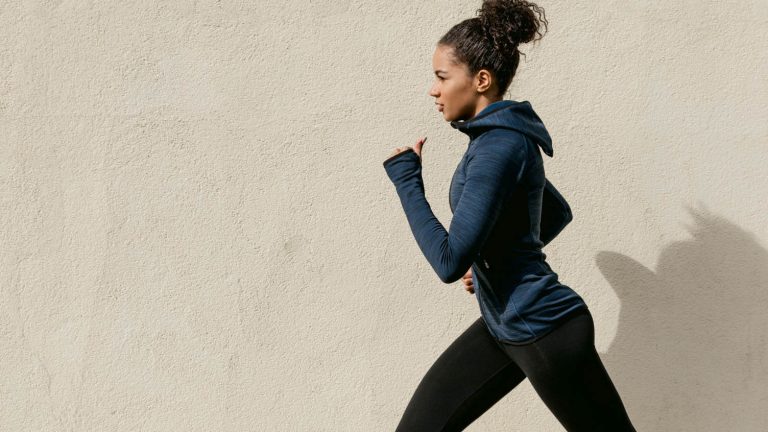Are extraordinary athletes a result of hard work or given abilities? Is there such a thing as a »sports gene«? Let’s break down the factors influencing remarkable athletic performance!
A gymnast jumps into the air, impossibly high, then bends her body in ways that make you think her spine is made of rubber. An exhausted marathoner struggles to cross those last meters toward the finish line, while a powerlifter lifts weights that look as heavy as your car. Witnessing such performances it’s not hard imagining that those people must be fundamentally different than you and me.
The 10,000-hour rule or genetic advantage?
In his book, The Story of Success, Malcolm Gladwell claims that the key to success in any field is simply a matter of extensive practicing. This has become known as the 10,000-hour rule. But like so many other traits sports performance is not determined by one individual factor. Instead, it is a complex mix of favourable genetic, environmental, and even psychological factors.
Genetic factors
Studies researching athletic performance within families suggest that genetic factors are responsible for 30 to 80% of the differences among individuals. In recent years studies have uncovered many genetic variants linked to athletic performance.
The most extensively studied is the ACTN3 gene which influences muscle fibre type. We have two types of fibre: slow and fast-twitch, and the prevalence of one type over the other determines if we are better at endurance activities such as long-distance running, or sprinting and other strength and power exercises.
You might be more prone to soft tissue injury, and your genes also dictate your aerobic potential, heart capacity, muscle fatigue, post-exercise recovery, and even if you have a fat burning gene!
Environment factors
Physical characteristics are just the tip of the iceberg because great athletes are not just a result of a lucky toss of the genetic dice. Your environment influences your athletic performance in a diverse and multi-layered way.
- Support: Sport is full of ups and downs, victories and failures, and strong support from friends and family can be the difference between picking yourself up or quitting.
- Proper coaching: A good coach is capable of not only passing on their knowledge but also personalizing their approach to suit each athlete’s unique physique and mentality.
- Economic circumstances: Some sports require almost no equipment while others demand deep pockets. Just think of ballroom dancing gowns, hefty price of skiing equipment, or the cost of owning a racing horse or a sailing boat!
- Nutrition: No matter how good your predispositions are, you won’t get far by living off fast food and sweet drinks. Proper nutrition is crucial for a healthy body.
- Overall health: Chronic diseases, injuries, operations, and other medical conditions can influence the individual’s athletic ability as strongly as any gene.
- Mental component: Everyone who’s ever done any sport can confirm that there is one key component of success: determination and willpower. Some even have a genetic advantage in the form of a warrior gene which enables them to perform exceptionally well under pressure.
-1.jpg)
Genes in action
Kenyans are usually the first to cross the finish lines of marathons all over the world. Members of Kalenjin, a Kenyan tribe, have proportionally long legs, light limbs, and coupled with larger lungs, a consequence of living at high altitude for centuries, they are practically made for distance running.
Jamaicans, on the other hand, are the world’s best short-distance runners with not only long limbs and narrow hips, but also a prevalence of the sprinting variant of the ACTN3 gene.
Finnish skier Eero Mäntyranta is considered the greatest endurance athlete of his generation. His success was partly due to a genetic variation, which made his body produce about 50% more red blood cells than a normal person. This equaled more oxygen in cells, which in turn lead to increased endurance.
Hitting the baseball depends more on eyesight than reaction. Our brains recognize the ball and predict its path based on visual information. That is why 58% of Major League Baseball players have “superior” depth perception compared to 18% of non-athletes.
The interaction between genes and the environment is constant, and if we want to utilise the full power of the knowledge stored in our genes, we have to understand both our genetic predispositions and our current lifestyle! Learn more about this interplay in this article.
Hard work without much success?
Despite hard work, some people see no real progress, so they often lose motivation and quit. Not two people will respond to training in the same way, because we are all different. And if those differences are not addressed in our training or fitness plan, there won’t be much to show for our efforts.
Knowing your genetic predisposition can help you choose the sport that best suits your body, and align your exercise plan with your body’s predispositions – either you are a professional or a recreational athlete. But keep in mind that genetic predispositions should be considered tools and not guarantees or even limitations of what you can achieve.
After all, being highly committed is a core value of every successful athlete! And genetic testing can help you up your game – if you’re sweating for that next big competition or just trying to keep your body fit and healthy.

















